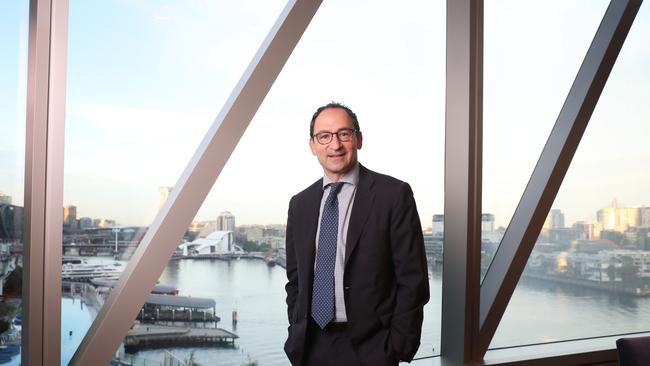Blackstone says economy slowing but no collapse
The private equity giant is preparing to spend up to $155bn, believing the slowing world economy is in better shape than before the GFC.

The world’s largest private equity firm, Blackstone, is ready to invest despite global uncertainties, saying that the global economy was slowing but was in better shape than ahead of the global financial crisis.
The firm’s president and chief operating officer Jonathan Gray told the Australian Economic Outlook that central banks were seeking to slow economies in order to contain inflation, but it was already coming down and the imbalances evident before the crisis were not present today.
“This is much different than back then. We had an enormous amount of excessive leverage and a lot of credit problems. We don’t have that with a Fed induced slowdown,” he said.
“And in the rest of the world central banks are tightening to kill off inflation. They’re going to do that. We’ll see the economy slow, but we don’t have the imbalances of 2008-2009,” he said.
Mr Gray said at that time housing and commercial real estate were over leveraged which was not the case today, even as the economy slowed.
“When you have tight credit, it will result in a slowdown, but it doesn’t necessarily mean it has to be as deep as what we experienced 15 years ago,” he said.
The group has a war chest of capital ready to deploy that is estimated at about $US194bn and it is open to moving early.
“I think you want to be open for investing before they put out the all clear sign,” Mr Gray said.
He noted that inflation had come down and the economy had been fairly resilient in the US and in most of the world.
“But the Fed is going to keep rates elevated and then other central banks have to follow and that‘s going to lead to an economic slowdown,” he said.
He also called out the impact of the US regional banking system which would see credit tighten. But he said the issue differed from the previous credit crisis when there was too much lent to subprime borrowers.
By contrast, the two big banks that failed in the US, First Republic Bank and Silicon Valley Bank, owned US Treasuries and super prime mortgages. They failed due to the mismatch in the long-term duration of those assets and their depositors who “when they got nervous can take the money out in 17 minutes”.
Mr Gray believes that prompt regulatory action has been effective in stabilising the financial system.
“The good news is, I think policymakers can deal with this, because it‘s not an underlying credit problem. But the bigger issue … is these banks are going to be more cautious in extending credit,” he said.
“So when you combine the Fed keeping rates elevated, keeping the cost of capital elevated, and regional banks pulling back so there’s less credit available, that’s where I think we’ll take some oxygen out of the room and slow the economy.”
Mr Gray said that Blackstone’s $8.9bn takeover of the once James Packer-controlled Crown Resorts was a “big bite” for the company as it was the firm’s biggest-ever investment in Asia. He called out the scale of the casino property in Melbourne and the unique nature of the Sydney asset which he dubbed “irreplaceable”.
“I don’t know if there’s any asset in the world of this condition and quality,” he said.
He said the local company had been going through a tough period and new owners were now “very focused on fixing that”. The company and rival casino owner Star Entertainment Group have been hit with heavy fines from regulators due to past misdeeds.
“We’re trying to put the sins of the past, that we have nothing to do with, behind us,” he said.
Mr Gray noted the past compliance problems and said that it was the firm’s “number one” job fix the issues, although it would take time.
“We believe if we run the assets in the right way, invest capital, partner with the employees, partner with the communities, then it will turn out to be terrific for our pension fund investors. But we still have a lot of work to do,” he said.







To join the conversation, please log in. Don't have an account? Register
Join the conversation, you are commenting as Logout